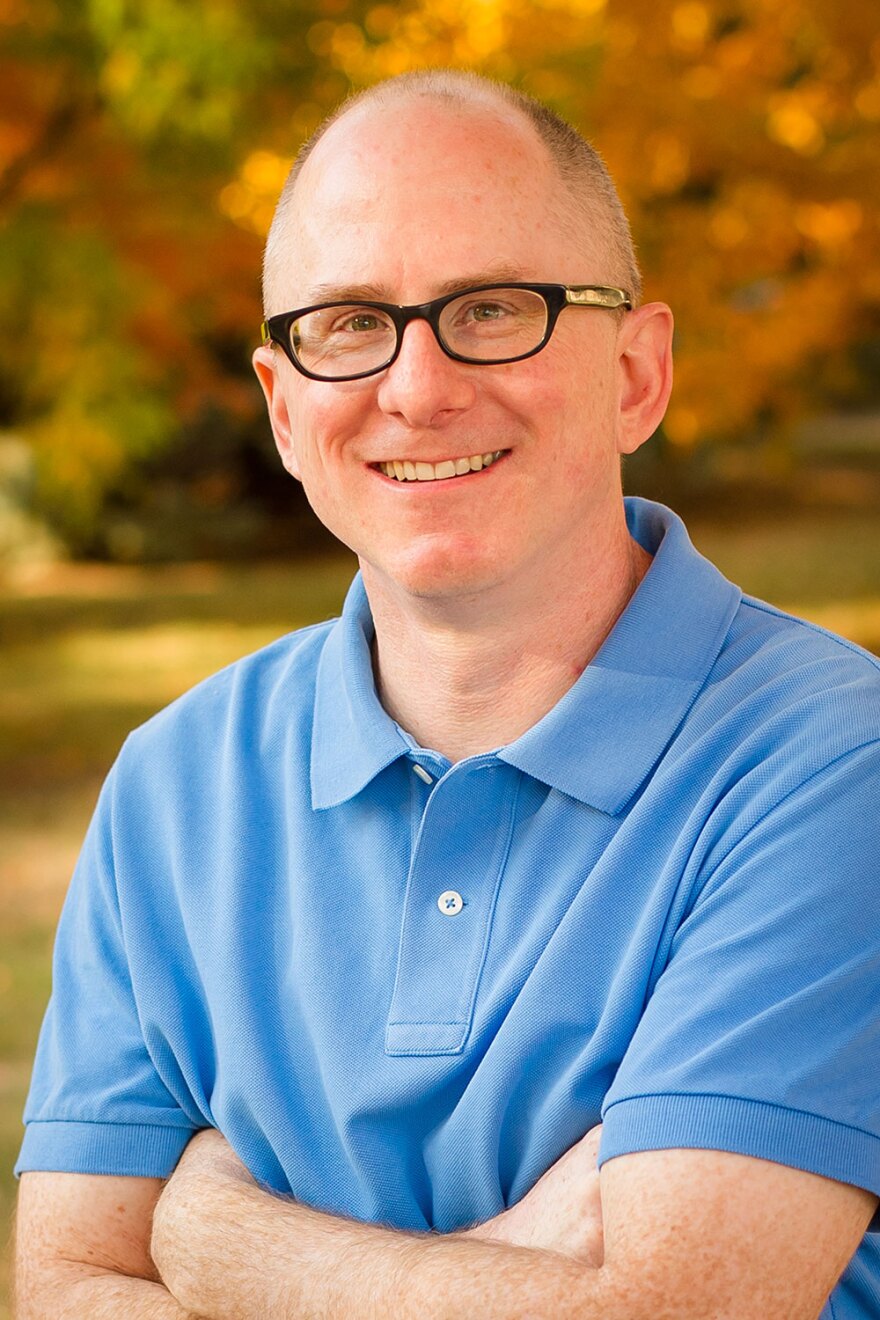In December, the Kansas Board of Regents instituted a policy governing social media use for the six-university system in the state. The controversy over the sweeping policy and the possibility of first amendment issues has been heating up ever since. KMUW's Aileen LeBlanc has this report:
BACKGROUND
The policy was created three months after The University of Kansas Professor David Guth sent out a provocative tweet aimed at the National Rifle Association. It was just hours after the Washington, D.C. Navy Yard Shooting.
Some Kansas lawmakers initially called for Guth’s termination, saying unless he was dismissed, they would not support budget proposals or recommendations related to KU. Guth was not fired but put on administrative leave. He publically apologized and deleted his Twitter account.
THE POLICY

KBOR Associate Director of Communication and Government Relations, Breeze Richardson, says that Guth’s Sept. 16 tweet, like many issues the board has faced in the past, illuminated an area in need of discussion.
“The incident that took place … at the University of Kansas with Dr. Guth, did raise awareness among the board that there was no current policy specifically dealing with the use of social media,” Richardson says.
The policy has received harsh criticism for its broad wording and passage without input from the university presidents, faculty and staff it affects. The now disputed language under Policy Chapter II C Suspensions, 6.b. includes the following:
“The chief executive officer of a state university has the authority to suspend, dismiss or terminate from employment any faculty or staff member who makes improper use of social media… ‘Improper use of social media’ means making a communication through social media that:”
6.b.iv. “… impairs discipline by superiors or harmony among co-workers, has a detrimental impact on close working relationships…”
Richardson says that the language used to craft the policy was taken entirely from existing Federal Supreme Court rulings.
REACTION
Adam Hochberg is a journalism instructor at UNC Chapel Hill and a Fellow at The Poynter Institute for Media Studies. Some of Hochberg’s specialties include new media, digital media and social media curriculum.
“It strikes me as a big overreaction,” Hochberg says of the KBOR policy. “I can’t defend the professor who sent out this tweet – I think it was way over the top – but is this a real problem where you need to rewrite that statewide policy because one guy sent out one tasteless tweet?”
“The two things that jump out at me in this policy is, first of all prohibition against any kind of comment ‘…that is contrary to the best interest of university.’ That is really broad language, and it doesn’t take too much imagination to come up with examples where that might be a real thicket patch,” he says.
“Do we really want to say that we don’t want anybody associated with the university to ever express any view on social media about anything that might be considered ‘detrimental’ to harmony on campus?”

Many are asking why a blanket policy was created when all six institutions governed by KBOR already have standards for appropriate public communication. Vice President for Academic Affairs for Wichita State University, Tony Vizzini, says he understands that reaction.
“The question is ‘Why is there a need to call this out if we already understand checks and balances?’” Vizzini says.
“At the university, we wish to embrace free speech and free speech is not in question here,” he says. “That’s because the regents have said they’ve used Supreme Court decisions to craft their language, so the Supreme Court has decided there are limitations of free speech. (KBOR is) embodying it in a stated policy – can it be interpreted as encroaching on academic freedom? Yes, and that is the concern - the interpretation.”

“I use statistics a lot and I’ve never acknowledged a sample of one. One incident does not require an action of this size,” WSU Engineering Prof., Dr. Gamal Weheba, says.
He and his colleague, Dr. Edwin Sawan, WSU Prof. Emeritus of Electrical Engineering and Computer Science, are members of the American Association of University Professors. Sawan says his first reaction to the KBOR policy was that it is too broad, and he fears the implications for academic freedom.
“Many of us have Facebook accounts and we have blogs where we integrate those with our academic activity, so that was our main concern (is) that it will restrict our freedom to exercise what we have been doing before,” he says.
WSU’s BlackBoard platform for students and teachers – a place where students can check their grades, download course documents and engage in group discussions – now falls under the category of ‘social media’ because the messages are broadcast to students, they say.


Matt Cecil, Director of the Elliott School of Communication at WSU, calls the situation an ideal teaching moment about the reality of online communication.
“It’s a good opportunity to talk about what the First Amendment really is – and the reality is that free speech doesn’t mean speech without consequences … It doesn’t mean you can say whatever you want, and your boss is just supposed to stand around and smile,” Cecil says. “Social media is new enough that I suppose some people don’t really understand very well that it is public communication, but it is. There are consequences for what you say in social media.”
Cecil says he supposes that Guth meant to spark a discussion of the Second Amendment but, because of the way he worded the original tweet, "We ended up talking about the first amendment instead. It wasn’t good messaging to begin with,” Cecil says.
Due to a swift and abundant response to the policy from the faculty of various universities, the board of regents has decided to appoint a workgroup to give feedback about the policy for possible review.
FOR MORE INFORMATION:
AAUP of Kansas Presents: 1st Higher Education Policy Convention - Feb. 8
American Association of University Professors - Kansas Conference


